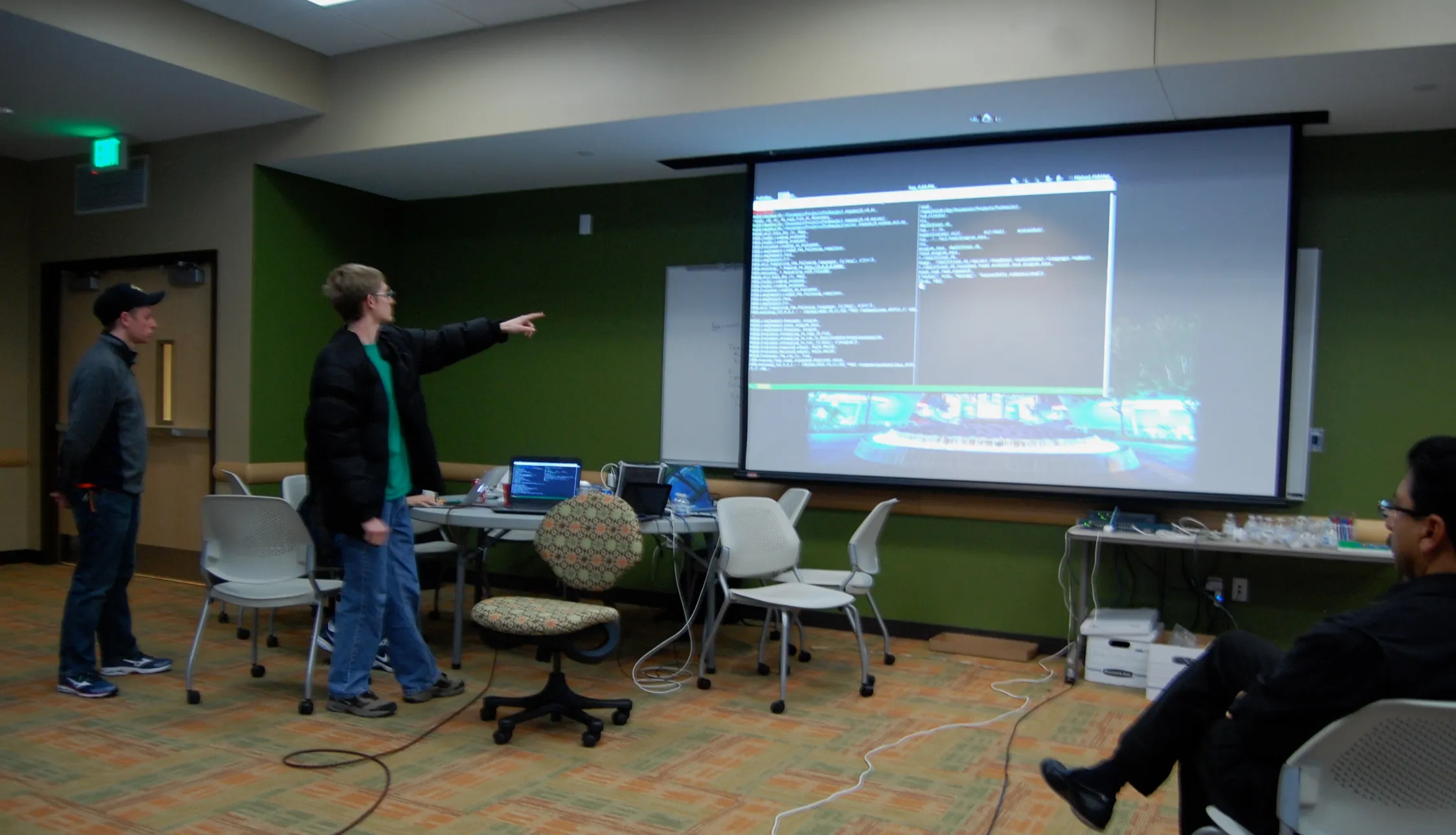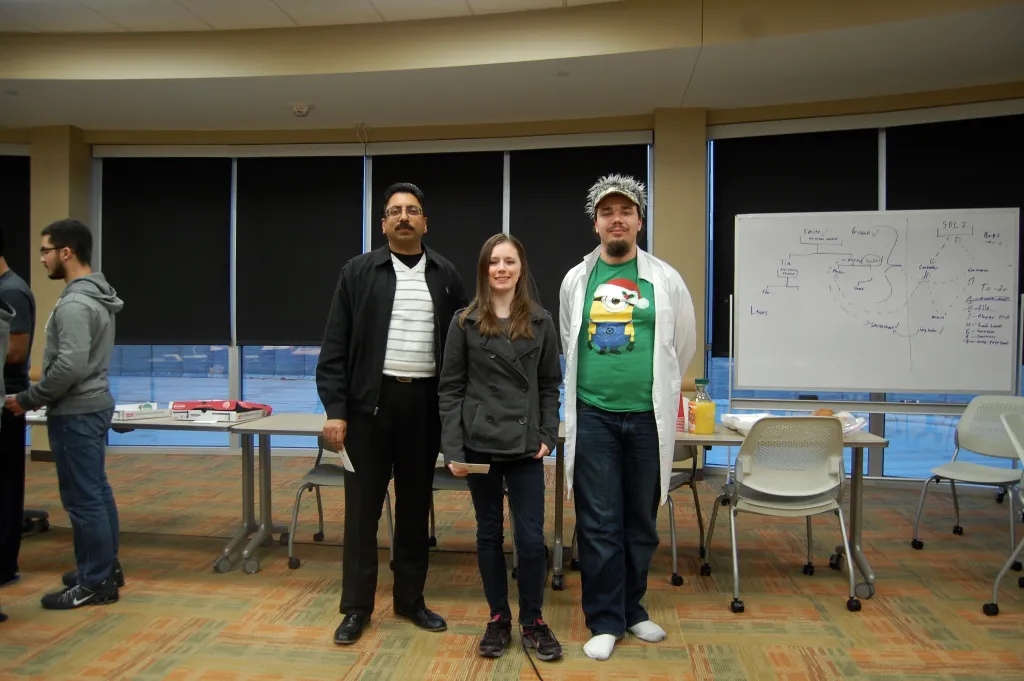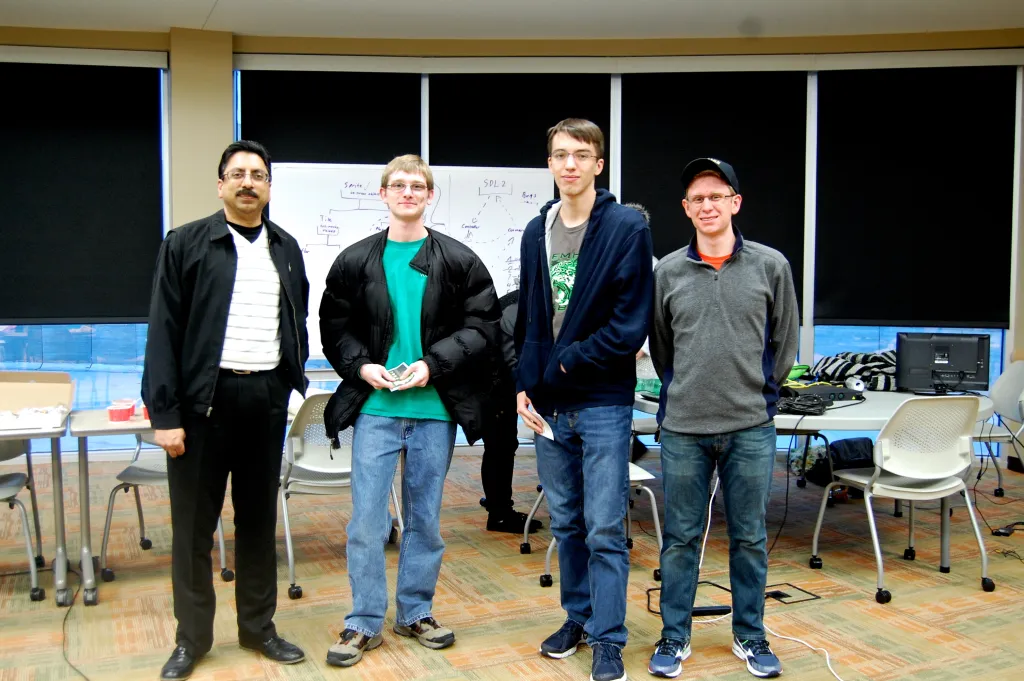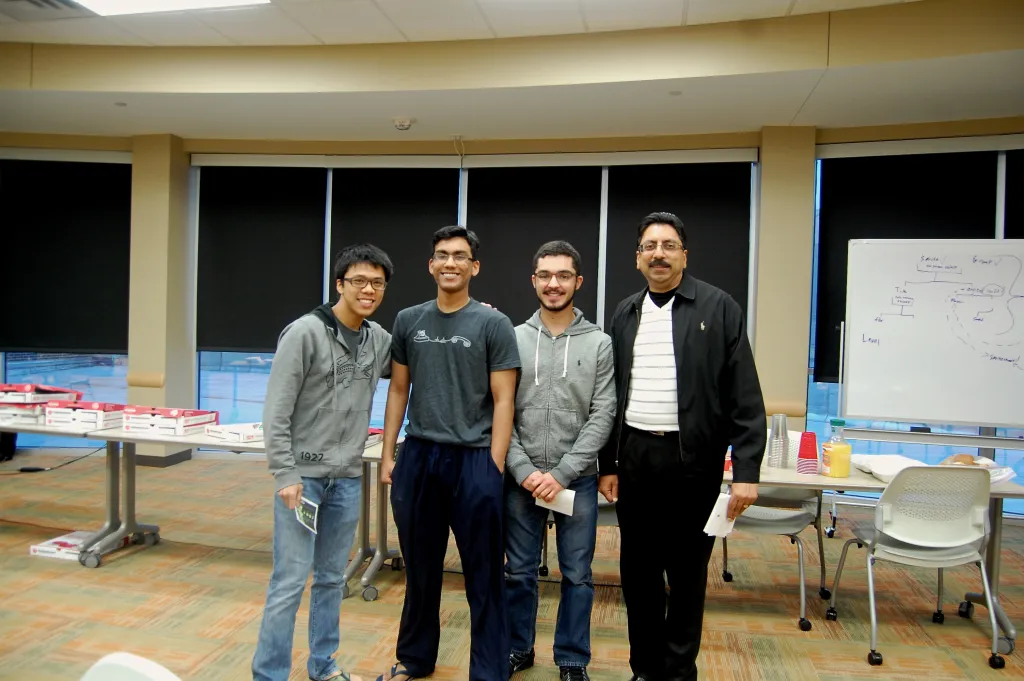Living Learning Community Host a 31-Hour Hackathon

The CS Living Learning Community (LLC) and the CS department sponsored a Hackathon over the weekend of March 7th and 8th. The event started at noon on Saturday and ended early Sunday evening. The principal objective of the weekend Hackathon was to bring together CS students to develop and design web, mobile, and software applications in a friendly competition.
The Hackathon took place in the UTD Residential Hall West building. Twenty students divided into four teams worked on a project of their choosing. For 31 hours the students worked as teams simulating a real-life work situation. The students used Java, C++, Rust, Python, and Adobe Photoshop to complete their programs. President of the UT Dallas ACM (Association for Computer Machinery), Elechi Izuchukwu, was at the event to give students coaching on overcoming minor technical difficulties.
The contestants were not judged in the traditional sense of coming in at first, second and third. Eliminating unbridled competition and focusing on learning, the submissions were placed in the categories of “Best Game,” “Most Useful to Public,” and “Most CS Service Oriented.” Serving as judges were Prof. Gopal Gupta, Prof. John Cole, and Prof. Janell Straach from the CS department.
The “Best Game” award went to Jess Wedman and Timothy Hewitt for the game “Forest Fire.” They used Python to create the game and Adobe Photoshop to render the images within the game. An upgrade to the program PS^2 earned Michael Aldridge, Ian Brown, Reid Levenrick the award for the “CS Oriented Service” category. The team upgraded the program PS^2 by making the most used features more accessible, thereby making the program more efficient. The “Course Adjust” app was chosen in the “Most Useful” category. The team of Ian Macalinao, Akhilesh Yarabarla and Winston Carlile used C++ to develop their app. This app allowed students to map out the remaining classes of their degree plan into semesters, taking into account all prerequisite classes.
Though they were tired, the participants were very enthusiastic in the comments about their Hackathon. Learning from their team members and team work, they discovered their own strengths and weaknesses. They also gained an appreciation for what they didn’t yet know. Timothy Hewitt was particularly pleased with having so much time to work through the problems he encountered in creating the game. “Usually I can only spend 4-6 hours on a problem before I have to move on to the next project. Here I had all the time I needed to be able to work through and find the solution to my problem.” Janell Straach who is a faculty advisor in the CS LLC summarized the Hackathon with two words, fun and learning.
The Living Learning Community (LLC) plans future tech-based events for CS students living in the LLC residence halls. The CS department has worked closely with the LLC to make the freshman year a positive experience. Through activities such as the Hackathon, students get to apply what they have learned in a friendly non-competitive atmosphere.







